Hospital visits are an inevitable part of life for children with Prader-Willi syndrome (PWS) since their birth. “We have always hoped for such a multidisciplinary approach that provides comprehensive assistance. We are tremendously grateful to PUMCH. This is more than just a free consultation to us. It is a case in point about the compassion of PUMCH towards patients that has never subsided for over 100 years.” This is the positive comment made online by a mother with a child that suffers from a rare disease. On August 19, the sixth Chinese Doctors’ Day, PUMCH organized a free rare disease consultation for PWS patients, involving specialists from the Department of Pediatrics, Rehabilitation, Dentistry, Clinical Nutrition, and Orthopedics Surgery. The consultation was well-received among patients and their families and the wider public as well.
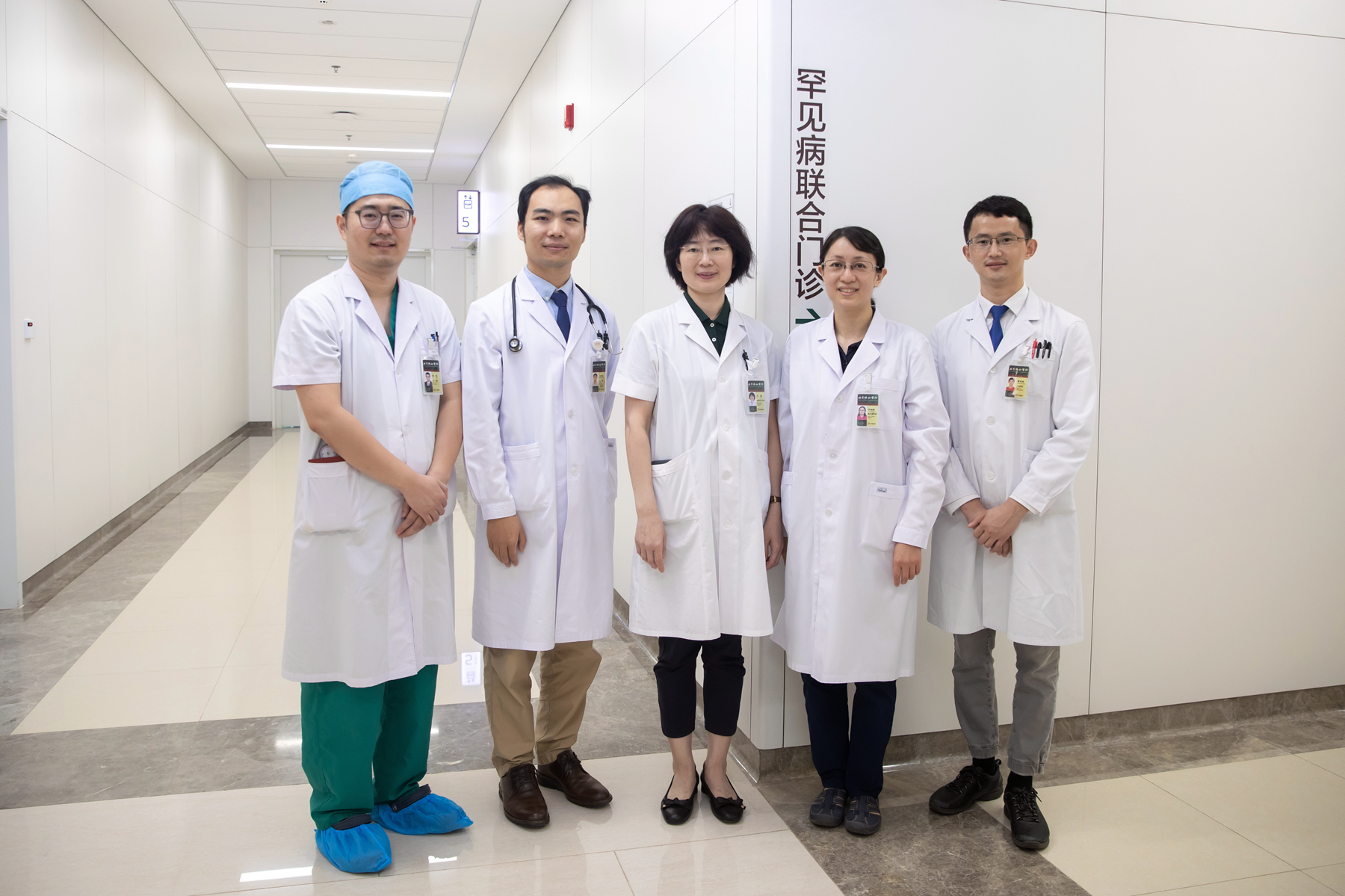
▲Group picture of specialists attending the joint clinic for rare diseases on August 19
PWS is a rare disease with an incidence of approximately 1 in 30,000. Common symptoms are hypotonia, intellectual disability, hypogonadism and obesity. PWS involves multiple organs and thus calls for multidisciplinary, comprehensive evaluation and intervention. Prior to the free consultation, PUMCH, via surveys and other forms of inquiry, gained a detailed understanding of the patients’ medical needs. According to the information gleaned, PUMCH determined and invited the five departments that were more relevant for the clinical manifestations of PWS to provide higher-quality and more comprehensive care. Then came August 19, and many parents arrived at the hospital early with their affected child, some even from up to a thousand kilometers away.
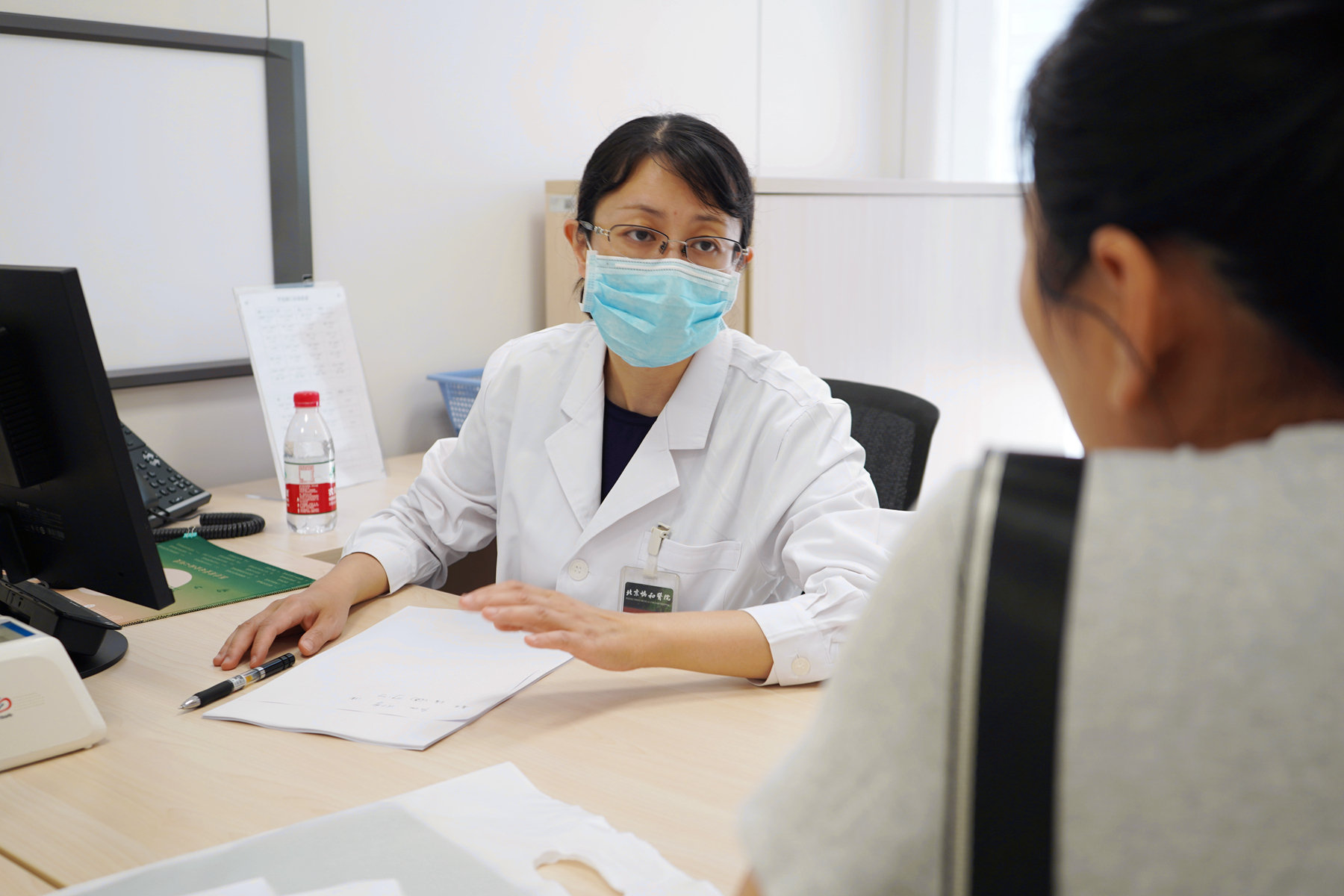
Patients with PWS are highly prone to overweight and obesity. In light of this, Dr. Li Rongrong, the Deputy Chief Physician from the Department of Clinical Nutrition, thoroughly assessed the children’s current nutritional status and provided them with personalized diet plans, and also offered targeted guidance on their daily dietary intake.
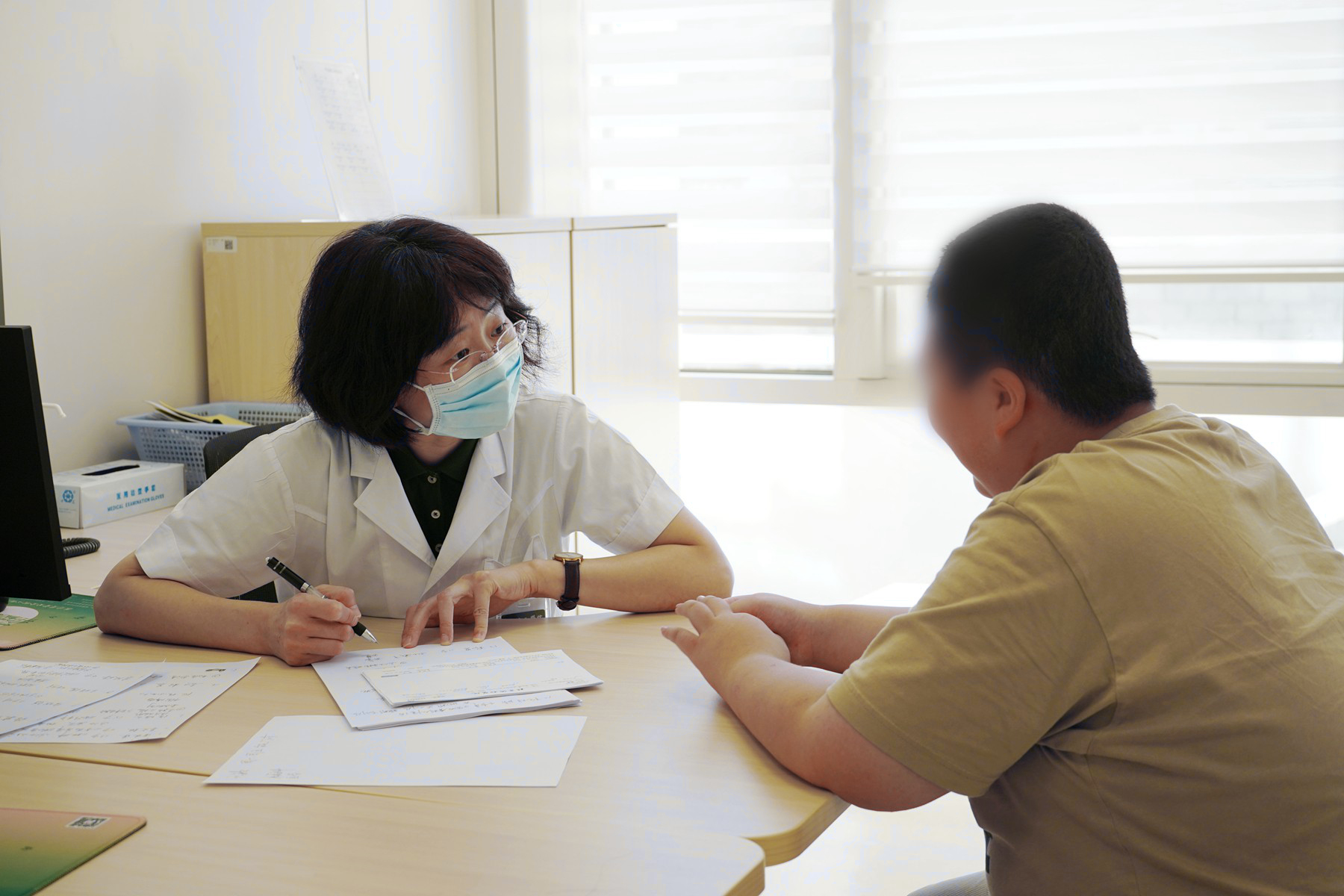
Delay in motor milestones and intellectual/language disabilities of children with PWS cause the greatest stress in their parents. During the consultation, Dr. Liu Ying, the Deputy Chief Physician of the Department of Rehabilitation, conducted a general assessment of the children’s gross motor skills, language, and cognition and provided recommendations for their future speech therapy.
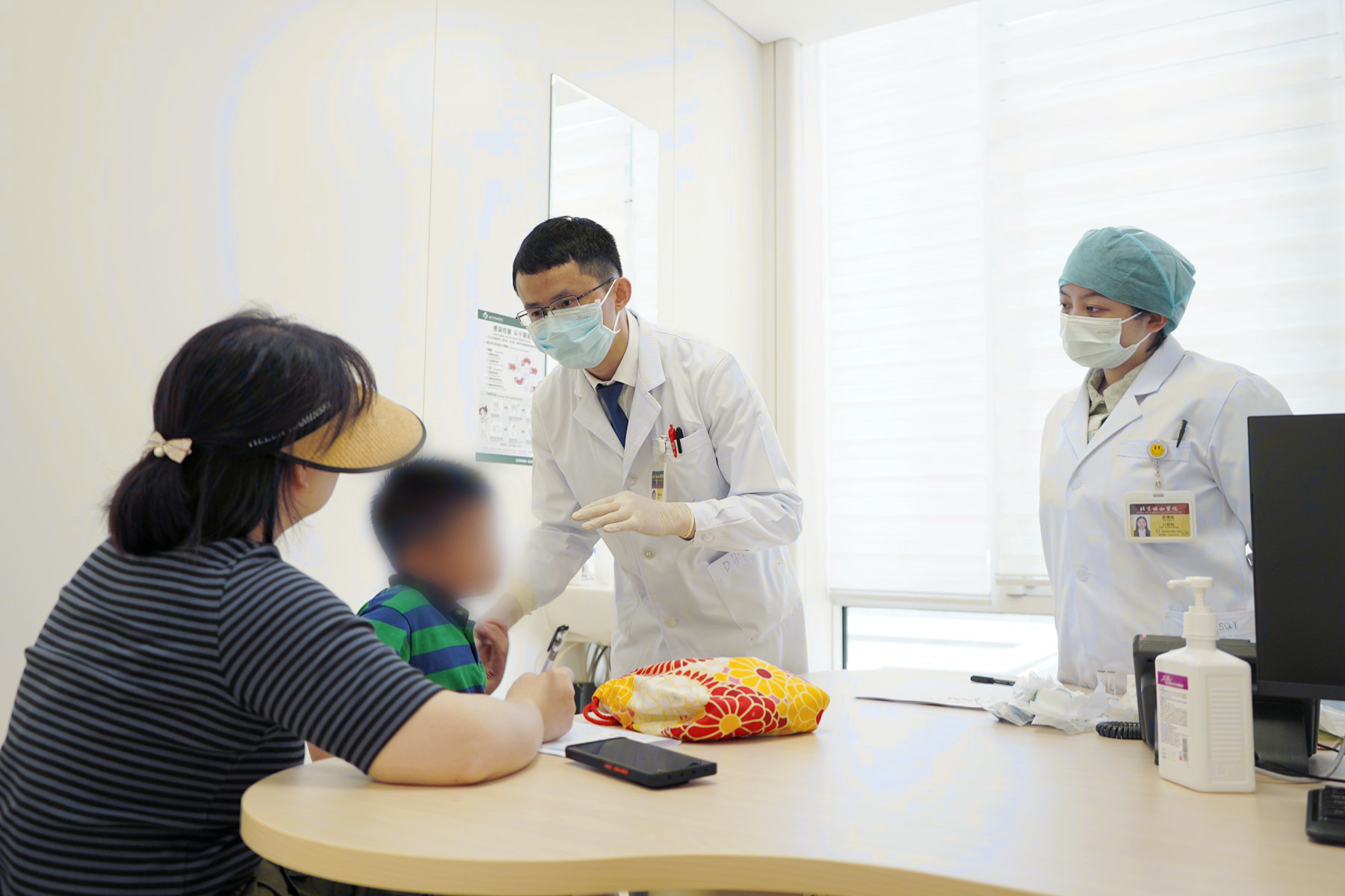
Most children with PWS suffer from oral problems such as tooth decay, tooth loss, and abnormal teeth alignment. In the examination room, Dr. Dong Haitao, the Deputy Chief Physician from the Department of Stomatology, first made the children relax with a “new toy”, a stomatoscope. His accessibility helped smooth the dental examination. Dr. Dong also patiently answered many of the parents’ questions regarding lifestyle and habits, dental treatments, and future care of permanent teeth, etc., which significantly alleviated their doubts and concerns.
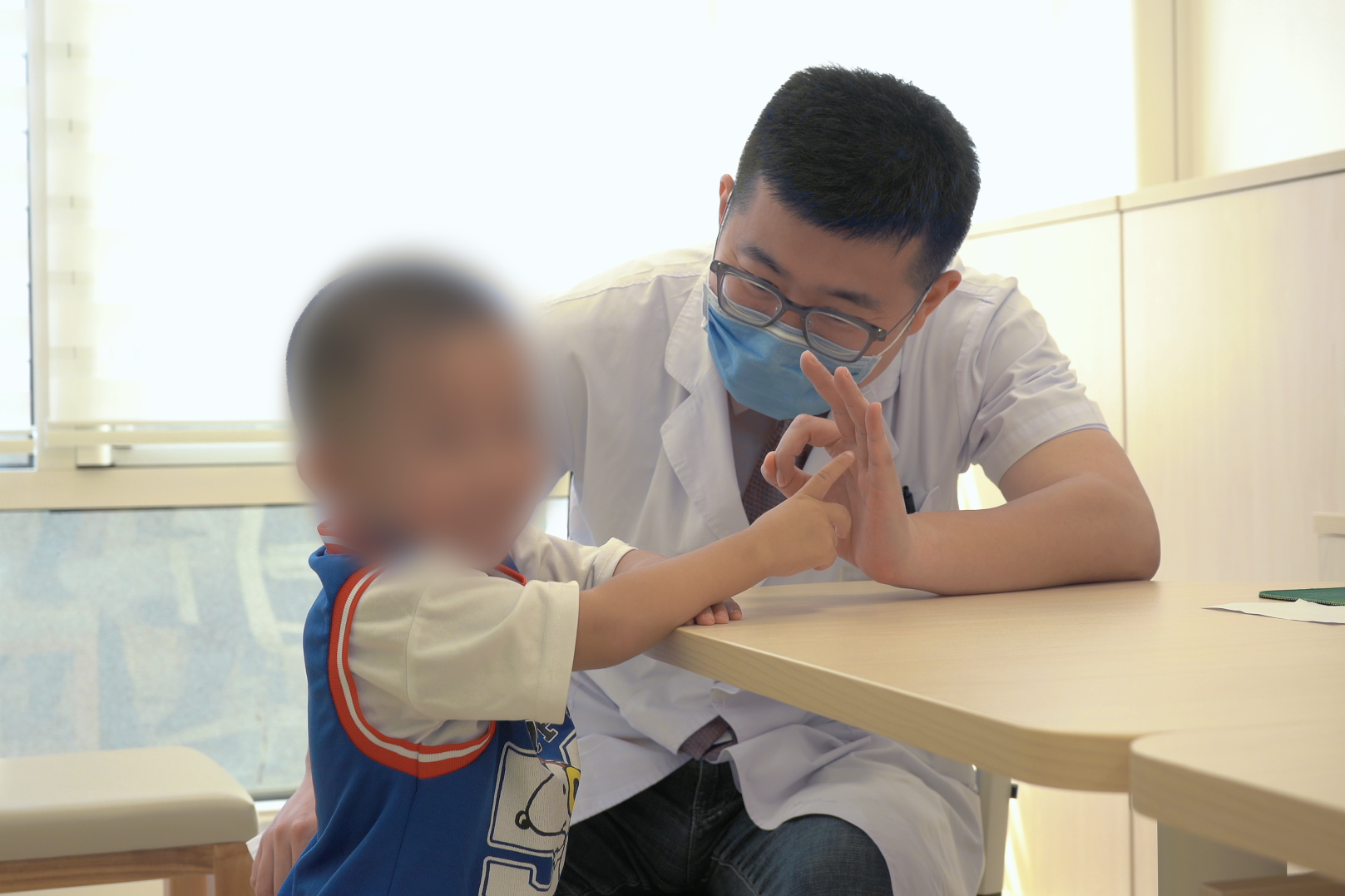
Scoliosis is a common issue among patients with PWS, and early detection and prevention are critical for it. Dr. Yang Yang, the Attending Doctor from the Department of Orthopedics Surgery, carefully examined the children’s spine and provided specific follow-up schedules and plans. He also patiently answered questions and clarified doubts regarding other orthopedic issues that family members noticed in daily settings, such as rib curvature abnormalities.
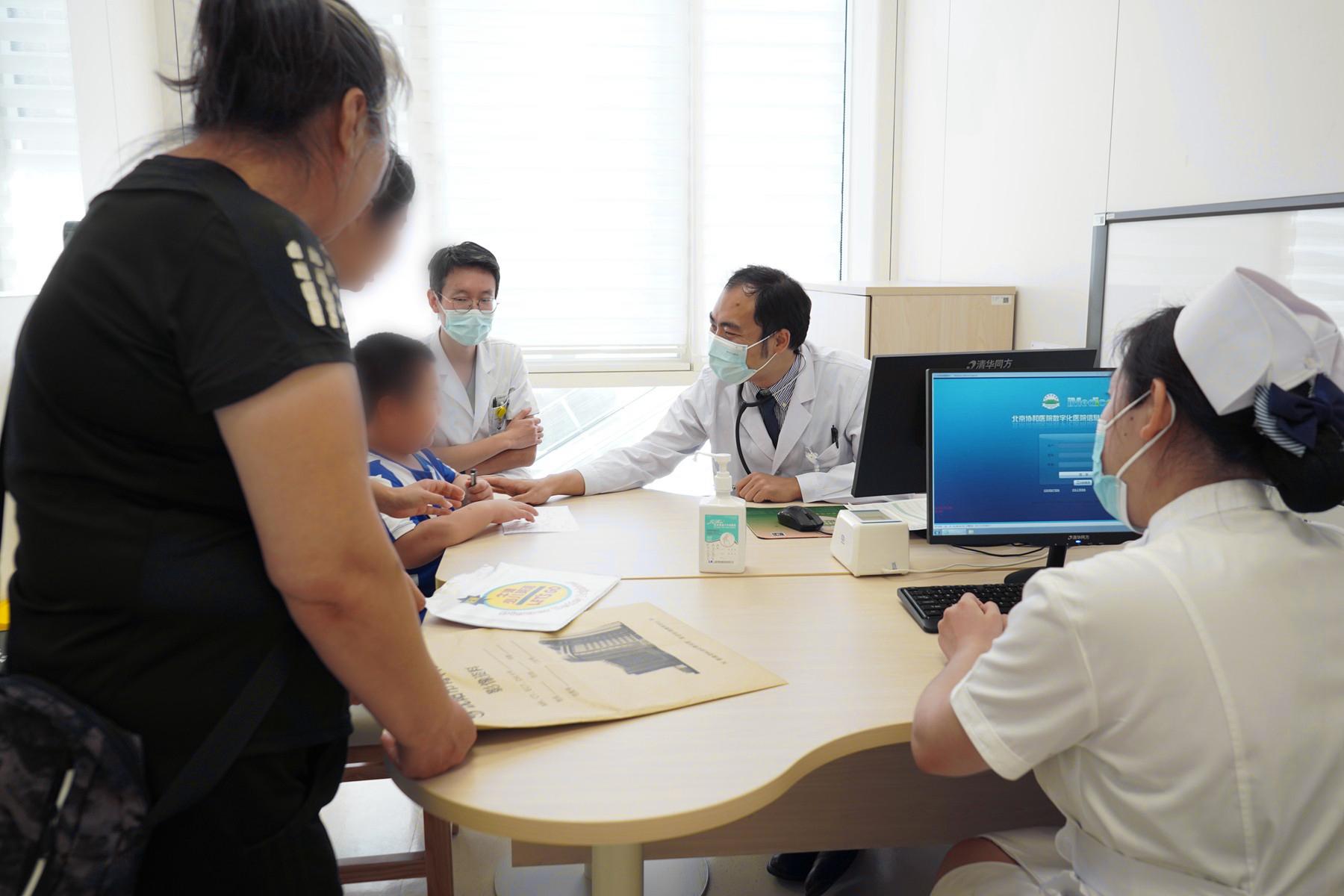
Associate Chief Physician Ma Mingsheng, the Assistant Director of the Department of Pediatrics, patiently and meticulously inquired about the conditions, adjusted the treatment plans, and tirelessly answered every question from the parents. He also heard them out like an old friend and reassured them when they vented their troubles and grievances. Dr. Ma said: “We are now able to definitely diagnose babies with PWS, just days after they are born. Although there is currently no cure, appropriate interventions can surely improve their quality of life and increase their life expectancy.”

As the only national-level leading hospital in the National Rare Disease Diagnosis and Treatment Collaborative Network, PUMCH works ceaselessly to innovate models, build platforms, and pool resources to improve rare disease diagnosis and treatment across the board. During the consultation, all the leaders of PUMCH present that day came and had cordial exchanges with the patients and their families and greeted the doctors there, celebrating the Chinese Doctors’ Day together. The spirit of the day was well captured by President Zhang Shuyang, who said: “On this special day, it is only fitting that we prioritize the provision of good services to patients over everything else. After all, serving people with compassionate care is our eternal pursuit.”
Written by Yan Xiaobo
Photographed by Sun Liang and Li Yuanjing
Edited by Yan Xiaobo and Chen Xiao
Translated by Liu Haiyan
Reviewed by Wang Yao
